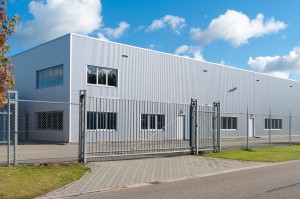Frequently Asked Questions About Commercial Fences
If you are a commercial building owner, you know that securing your property is important to your company’s success. You may need to protect your property from vandalism, theft, or other destructive nuisances, or it may be privacy your company needs. Although there are many ways to do so, purchasing and installing commercial fencing is considered one of the most cost effective and long-term solutions to securing commercial property. Here are some questions to ask yourself about commercial fencing:
- Why install a commercial fence? Fencing can provide your business with security, privacy, and the ability to aesthetically fit into your neighborhood. Besides protecting valuable equipment, you can also restrict access to unwanted guests or unsafe areas of your property. Fences can also make the exterior of your property more visually appealing.
- Can you afford commercial fencing? New fencing materials allow contractors to construct commercial fences in a variety of price points, so you can find one to fit your budget. But the question isn’t if you can afford a fence, but rather can you afford not to protect your company. Property destruction or loss can eat into profits quickly, so protecting it with a fence makes sense. Also, don’t forget to check if installing a fence will lower your insurance costs.
- What are the types of commercial fence materials available? The type of material you choose depends on why you are building the fence. Is it for security, privacy or to add property value? As a rule, any fencing material can be used to construct a commercial fence. Chain-link and tubular steel or aluminum are frequent choices for an industrial look. PVC and wood are common materials for aesthetic fences.
- Should you get a contractor? Yes. A contractor is an asset when considering commercial fencing. Besides providing information on which type of fencing is right for your property, he or she can also explain maintenance requirements and available price points. Additionally, a contractor can check local zoning restrictions and locate the property line.

